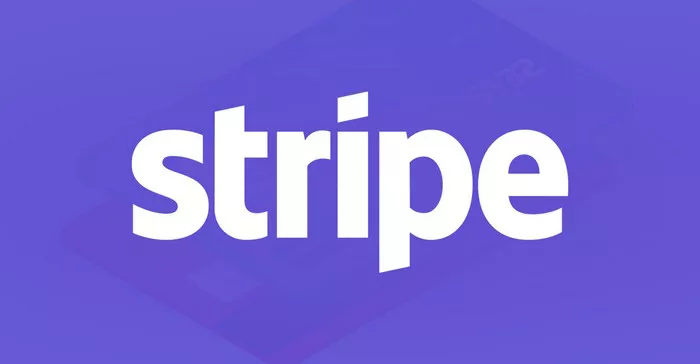The fintech industry has been transforming financial services across the globe, with the USA standing as a leader in innovation and growth. These companies are driving advancements in payments, lending, personal finance, investment, and more. Here’s a look at the top 10 fintech companies in the USA, each revolutionizing different aspects of finance.
1. Stripe
Overview
Founded in 2010, Stripe has quickly become one of the most valuable fintech companies in the world. Specializing in online payment processing, it enables businesses to accept payments, manage revenue, and streamline financial processes.
Key Contributions
Stripe’s platform is trusted by millions of companies, including Amazon and Shopify, thanks to its secure, customizable, and developer-friendly payment solutions. Its financial infrastructure for the internet enables businesses of all sizes to access powerful financial tools without needing an in-house finance team.
2. Square (Block, Inc.)
Overview
Founded by Jack Dorsey in 2009, Square, now part of Block, Inc., started as a payment processing service for small businesses. Today, it’s a multi-faceted fintech company with offerings for payments, payroll, and point-of-sale (POS) systems.
Key Contributions
Square’s POS systems empower small and medium businesses by allowing them to accept card payments seamlessly. Additionally, its Cash App is widely popular among consumers for peer-to-peer payments and investing, making it a top player in both consumer and business financial services.
3. PayPal
Overview
PayPal, one of the pioneers of digital payments, has consistently evolved to remain a leader in fintech. Founded in 1998 and made famous by co-founder Elon Musk, PayPal provides a wide range of financial services for individuals and businesses.
Key Contributions
PayPal’s services span from online payments and money transfers to credit offerings for consumers and merchants. It owns Venmo, a popular peer-to-peer payment app, and has been active in supporting cryptocurrency transactions on its platform, keeping it relevant in the ever-changing fintech landscape.
4. Robinhood
Overview
Founded in 2013, Robinhood disrupted the investment world with its commission-free trading model. Targeting younger and first-time investors, it offers a user-friendly platform for trading stocks, ETFs, options, and cryptocurrencies.
Key Contributions
Robinhood’s approach to “democratizing finance” made investing accessible to millions of people. By eliminating commission fees, it helped popularize retail investing, although it’s faced scrutiny regarding trading practices. Nevertheless, its model reshaped the brokerage industry.
5. Chime
Overview
Chime, founded in 2013, is a digital bank that offers a range of banking services with no monthly fees. It appeals to those looking for a flexible, fee-free banking experience, offering checking accounts, savings accounts, and early access to direct deposits.
Key Contributions
Chime’s app-based model is changing the way people think about banking. It provides services like automatic savings, no overdraft fees, and an emphasis on financial wellness, making it a popular alternative to traditional banks, especially among younger users.
6. SoFi (Social Finance, Inc.)
Overview
SoFi, established in 2011, started as a student loan refinancing company but has since expanded into a full-spectrum financial services provider. SoFi now offers personal loans, investment accounts, mortgage refinancing, and insurance products.
Key Contributions
Known for catering to high-earning young professionals, SoFi provides members with tools to manage debt, grow wealth, and achieve financial independence. Its recent acquisition of a banking charter allows it to offer more comprehensive services, making it a strong competitor in the digital finance space.
7. Coinbase
Overview
Founded in 2012, Coinbase is one of the largest cryptocurrency exchanges in the world, helping millions of users buy, sell, and manage their crypto assets. Its public listing in 2021 solidified its position as a prominent player in both the fintech and crypto industries.
Key Contributions
Coinbase’s user-friendly platform and robust security measures have made it a preferred choice for beginners and experienced crypto enthusiasts alike. It continues to expand its offerings by adding new cryptocurrencies, services for institutional investors, and educational resources on blockchain technology.
8. Plaid
Overview
Plaid, founded in 2013, is a leading fintech infrastructure provider. It connects financial apps to users’ bank accounts, allowing seamless integration for services like budgeting, payment, and investing.
Key Contributions
Plaid plays a vital role in the fintech ecosystem, powering popular financial apps like Venmo, Robinhood, and Acorns. By providing secure, easy-to-integrate APIs, it allows fintech companies to connect with users’ bank accounts in a secure and efficient manner, facilitating the growth of other financial services.
9. Betterment
Overview
Betterment, founded in 2008, was one of the first robo-advisors to offer automated investment management to the public. It provides low-cost, goal-based investing, allowing users to build portfolios tailored to their needs.
Key Contributions
Betterment’s innovative approach to investing has popularized the concept of robo-advisors. With personalized financial planning and tax-efficient portfolios, it offers an alternative to traditional financial advisors, catering to a broad audience of beginner and seasoned investors alike.
10. Affirm
Overview
Affirm, founded in 2012, is a leader in the “Buy Now, Pay Later” (BNPL) space, offering installment payment solutions to consumers at checkout. It partners with a wide range of retailers, providing consumers with the flexibility to make purchases and pay over time.
Key Contributions
Affirm’s BNPL model is transforming the credit industry by offering transparent, interest-free or low-interest installment payments. This service appeals to consumers looking for alternatives to traditional credit cards, allowing them to manage expenses without accumulating high-interest debt.
Conclusion
These top 10 fintech companies in the USA represent the cutting edge of financial technology, each addressing specific needs in the market. From digital payments and investing to banking and lending, these companies are not only improving financial accessibility but also changing the way we interact with money. As fintech continues to grow, these companies will likely play a significant role in shaping the future of financial services in the USA and beyond.
You Might Be Interested In:



























